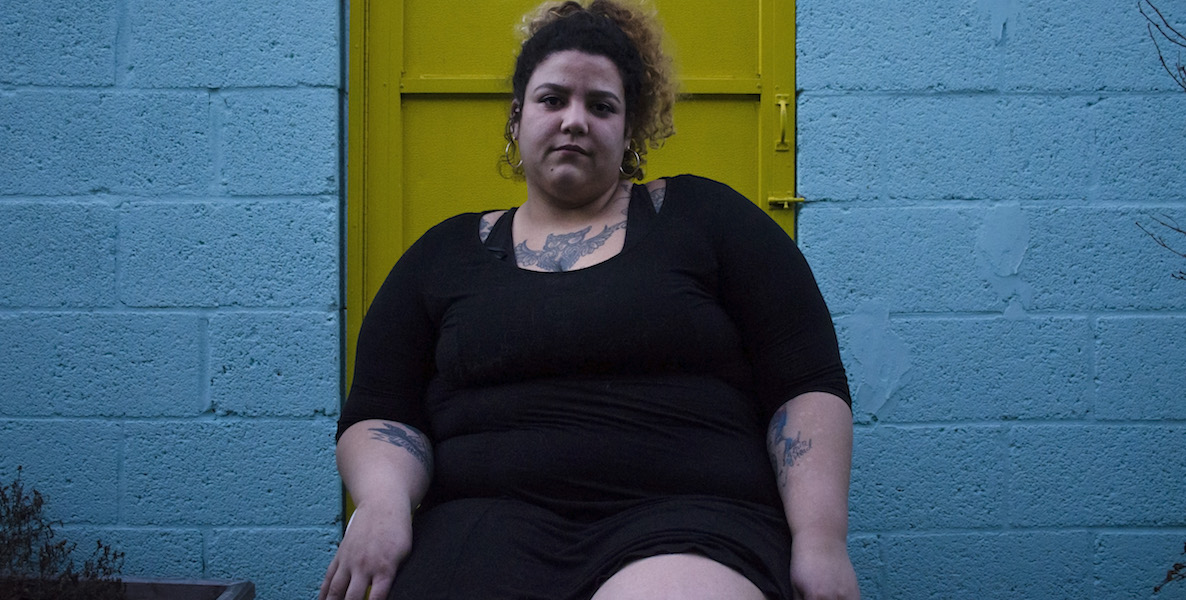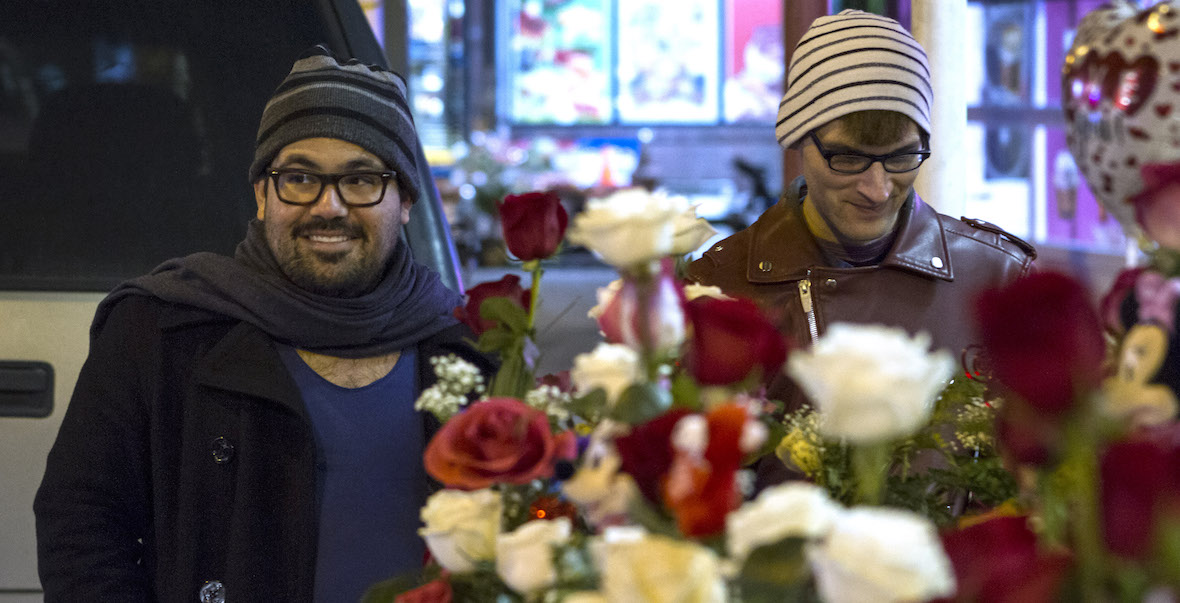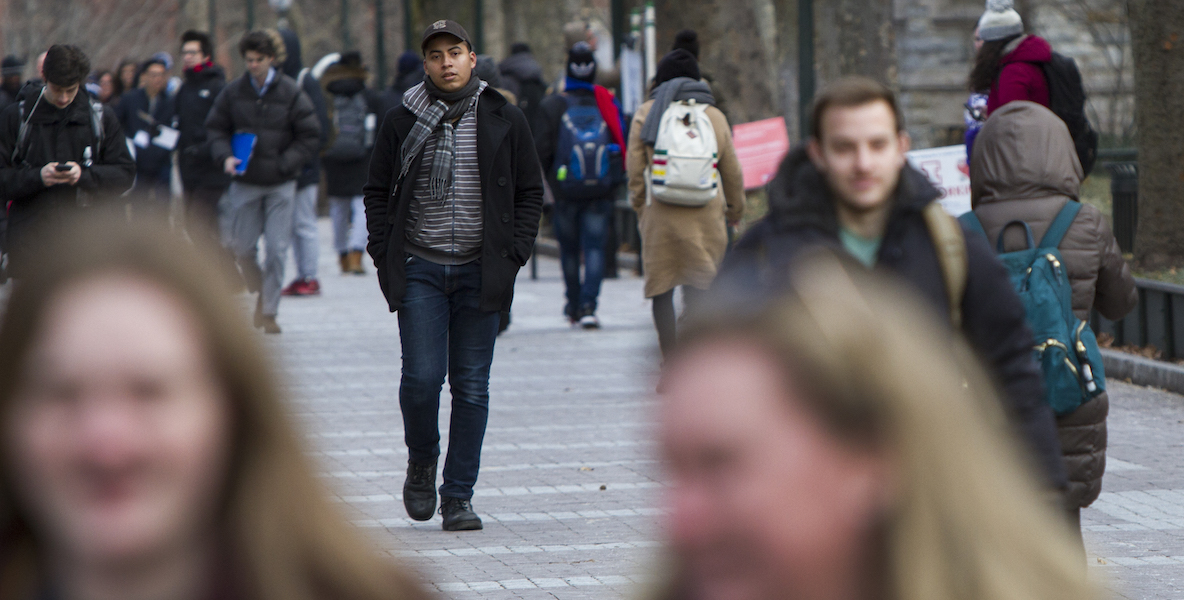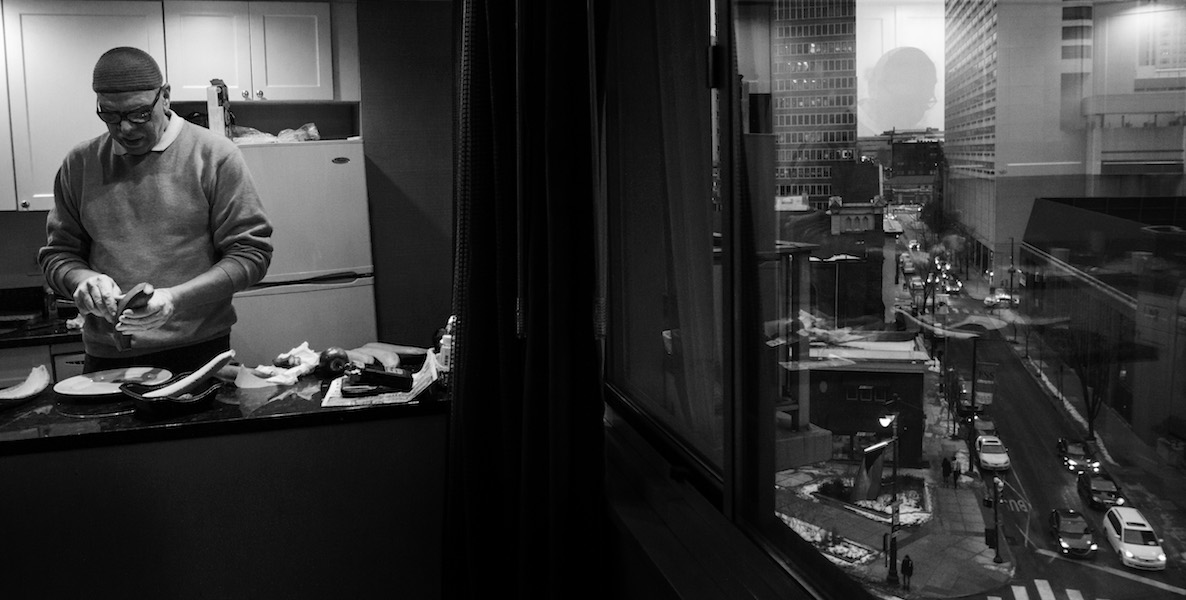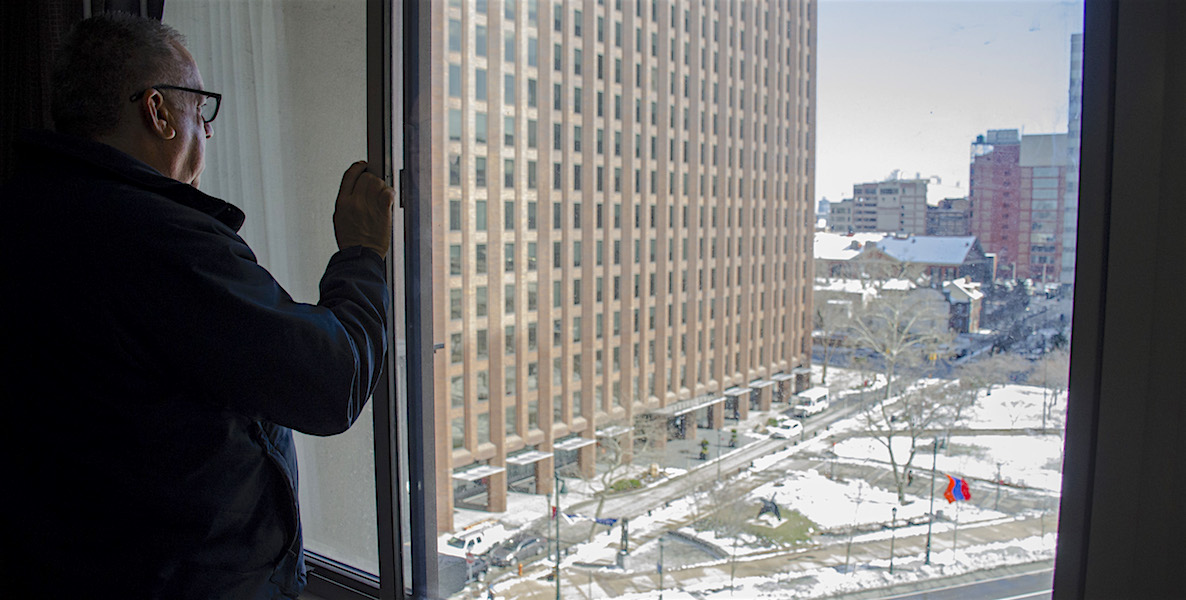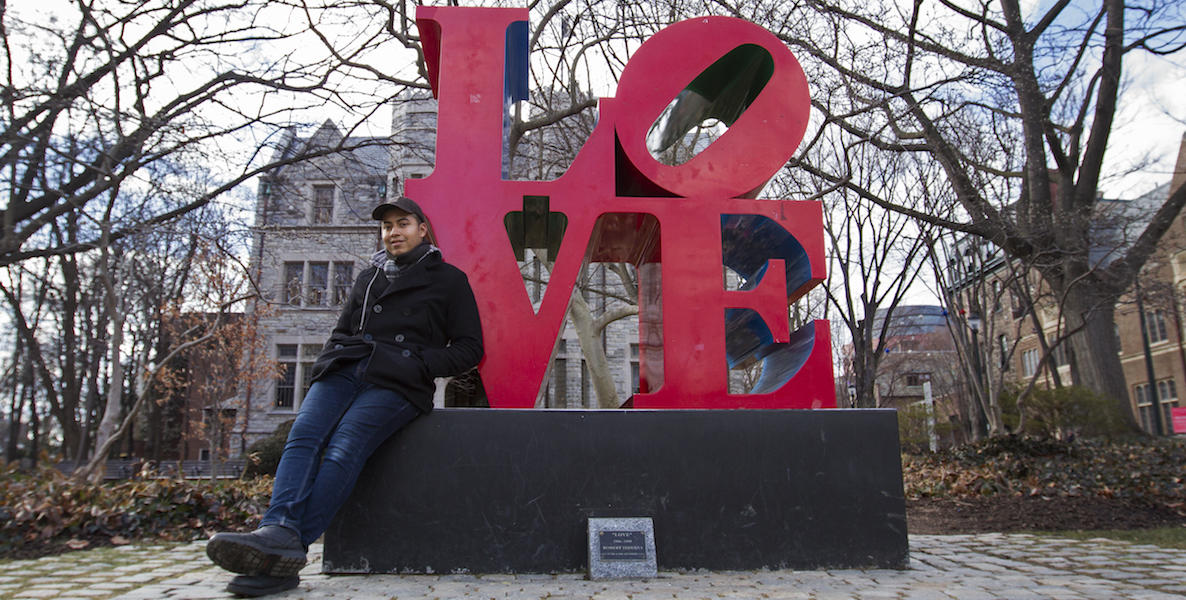Carlos Torres Aviles and his son, Carlos Javier, slept on their living room floor for 108 days. The whole house was scorching, so the front door swung back and forth throughout the night, left open to let the coolness trickle in. Carlos still lived in the public housing complex el Residencial Las Casas in Barrio Obrero, the neighborhood where he had grown up, a neighborhood he loved: “I was raised amongst humble and good people, with the best parents I could have asked for.” But nothing was the same. The feeling of familiar unfamiliarity struck him everyday.
Maria “touched the fibers of our heart,” says Carlos. Their house flooded, and much of their furniture was damaged. The location of the washing machine, which had flown away, was a mystery. They cooked every meal on a small gas stove in dim candlelight after losing power, which had arrived two days before, to only be lost 48 hours later. The storm hadn’t frightened Carlos. He knew that hurricanes were a cyclical occurrence that washed over Puerto Rico time to time. “I lived Hugo, I lived George…but I didn’t have a son then,” he says. “I was worried about him.” The father and son pair worked tirelessly to prevent their home from flooding while the storm raged outside.
By the time Maria receded from the coasts of Puerto Rico, Carlos was relieved and happy the storm’s frenzy had ceased. This feeling would be short-lived, however, as soon as he stepped outside. His childhood neighborhood was unrecognizable; there were “fallen post lamps, cement roofs split in half, and trees everywhere.”
During his 15 years as a survey engineer with the Authority of Public Buildings, Carlos’ job was multifaceted. Sometimes he was on the field assessing and patching up deteriorated buildings. On other occasions, he was a concierge and a chauffeur. He grumbles about how anachronistic he felt in his position at times: “Now with the satellites, there often isn’t much to survey or measure.”
The father didn’t leave Puerto Rico because his island was in trouble. He loves his homeland, where his roots and family reside. But “I wasn’t thinking about me. I was thinking about my son. I wanted to find a better quality of life for him, and to find ‘the American Dream,’ a phrase I always put in quotes.”
After the hurricane, however, came a whole new slew of responsibilities. The day after Maria, he was already assessing damage to school buildings. Carlos feared what he saw. The educational centers and the infrastructure, the basic underpinnings of a functional society, were destroyed. Most of his labor was focused on recovery work, and he spent afternoons with his teams planning how the government would rehabilitate schools and other public buildings. On one occasion, however, he had to pick up 200 dead black crows in Carolina, the municipality where his regional office was located. More than anything, Carlos was frustrated because he couldn’t do more to help: “We simply didn’t have the equipment or the tools necessary to do what needed to be done.”
![]() It was two weeks after Maria that Carlos decided to leave. The thought had not occurred to him concretely until Carlos Javier told him: “Papa, I want to go. There are no schools here.” His teenage child was distressed by the lack of light and water, and the wave of crime that had overtaken Barrio Obrero and the rest of the island. He wanted to keep going, but life as it was known had been interrupted.
It was two weeks after Maria that Carlos decided to leave. The thought had not occurred to him concretely until Carlos Javier told him: “Papa, I want to go. There are no schools here.” His teenage child was distressed by the lack of light and water, and the wave of crime that had overtaken Barrio Obrero and the rest of the island. He wanted to keep going, but life as it was known had been interrupted.
To Carlos, Carlos Javier is the “light of his eyes.” He has been a single father since Carlos and his ex-wife separated. When Carlos’ elderly mother was diagnosed with dementia and moved in with the pair, Carlos Javier “took care of his grandma for the six years she lived with us until she passed away. He was bathing her, soothing her, and feeding her by the time he was nine years old.”
The father didn’t leave Puerto Rico because his island was in trouble. He loves his homeland, where his roots and family reside. But “I wasn’t thinking about me. I was thinking about my son. I wanted to find a better quality of life for him, and to find ‘the American Dream,’ a phrase I always put in quotes,” Carlos says.

Carlos and Carlos Javier only came to Philadelphia recently. They arrived on the 10th of January, the only day tickets were cheap enough that Carlos’ brother, who bought the airfare for him, could afford them. The decision to come after the new year was intentional: Carlos Javier wanted to spend the Christmas season in Puerto Rico, a time known on the island for around the clock joyous celebration with family and friends. He wanted one last holiday in his homeland before departing into the unknown. Their power came back on Three Kings Day, January 6th, but by then they were packed up to leave.
They chose Philadelphia because Carlos “wanted to do something different. Everyone is leaving to Orlando. Florida is saturated.” He also has some family in the area, though he has not been in contact with the majority of them since arriving.
He does not know where his future will lead him, but he knows exactly where he wants to stay. “I am happy to be here, and I want to contribute to Philadelphia,” Carlos says. He is motivated to give his son a better life in the city, one he felt he could not provide in post-Maria Puerto Rico.
When he arrived, Carlos had no plan or place to stay, but he had full faith that God would place him somewhere warm for the night. He had called FEMA’s offices back in Puerto Rico, but they had not followed up with any information.
As soon as the plane touched ground at 5 am, Carlos began his search for housing. He got in touch with Councilwoman Maria Quiñones-Sanchez, The Salvation Army, and everyone else he thought could help him. It was at Rep. Emilio Vazquez’s office that someone reached out to FEMA, who told him that he had already been assigned a spot in their transitional housing program. Carlos was baffled. It was the first time he had heard of his placement.
By the afternoon, he had checked into the Windsor Suites on Benjamin Franklin Parkway, a hotel which has been hosting multiple evacuees (including Raúl and Asaf, who were featured in this series.) Carlos also matriculated his son in a heavily Puerto Rican school in North Philadelphia.
![]() Since they left Puerto Rico, everyday runs the same course. Carlos wakes up at 5 am, prepares breakfast, then wakes up his son to start the day. He is surprised at how late the world awakes here: “In Puerto Rico, the work day begins at 7 or 8 am. Places open at 8 or 9 here.” After his son takes SEPTA to school, he prints out a stack of resumes at the hotel and drops them all over the city. “I’ve applied to jobs everywhere. I came to echar pa’ lante. To move forward. I will do any kind of work that lets me provide for my son.” He frequently sends his resume to Rep. Emilio Vazquez’s office to get feedback and edits.
Since they left Puerto Rico, everyday runs the same course. Carlos wakes up at 5 am, prepares breakfast, then wakes up his son to start the day. He is surprised at how late the world awakes here: “In Puerto Rico, the work day begins at 7 or 8 am. Places open at 8 or 9 here.” After his son takes SEPTA to school, he prints out a stack of resumes at the hotel and drops them all over the city. “I’ve applied to jobs everywhere. I came to echar pa’ lante. To move forward. I will do any kind of work that lets me provide for my son.” He frequently sends his resume to Rep. Emilio Vazquez’s office to get feedback and edits.
Carlos Javier is also looking to pitch into the efforts. “He doesn’t want to play ball or anything of the sort,” says Carlos. “He is looking for work.”
He has found community in his hotel. Everyday after waking up, he comes down to the lobby to say hello to the Windsor staff, who even made a card for his son’s birthday. He is forever grateful for the help and support he has gotten in his temporary home. After FEMA first told he’d be evicted on Valentine’s Day, the agency has now extended his stay until March 20th.
Carlos’ former job in Puerto Rico gave him a conditional leave without pay, and he can return to it until December 31st of this year. He does not know where his future will lead him, but he knows exactly where he wants to stay. “I am happy to be here, and I want to contribute to Philadelphia,” Carlos says. He is motivated to give his son a better life in the city, one he felt he could not provide in post-Maria Puerto Rico.
“I urgently ask the government of this country, of this state, that you help us. I am not asking anything that isn’t impossible for them. I need housing and work. I am not asking for a car or a plane, but the most basic of things,” Carlos says. “All I am asking, from the bottom of our hearts, is that you help us.”
Carlos Torres Aviles looks out the window in his hotel room at The Windsor Suites on the Benjamin Franklin Pkwy in Philadelphia, Pa. When Carlos and his son arrived in Philadelphia on Jan. 10, Rep. Emilio Vazquez's office reached out to FEMA, who told Carlos he had been assigned to a spot in their transitional housing program. Photo by Cameron Hart


